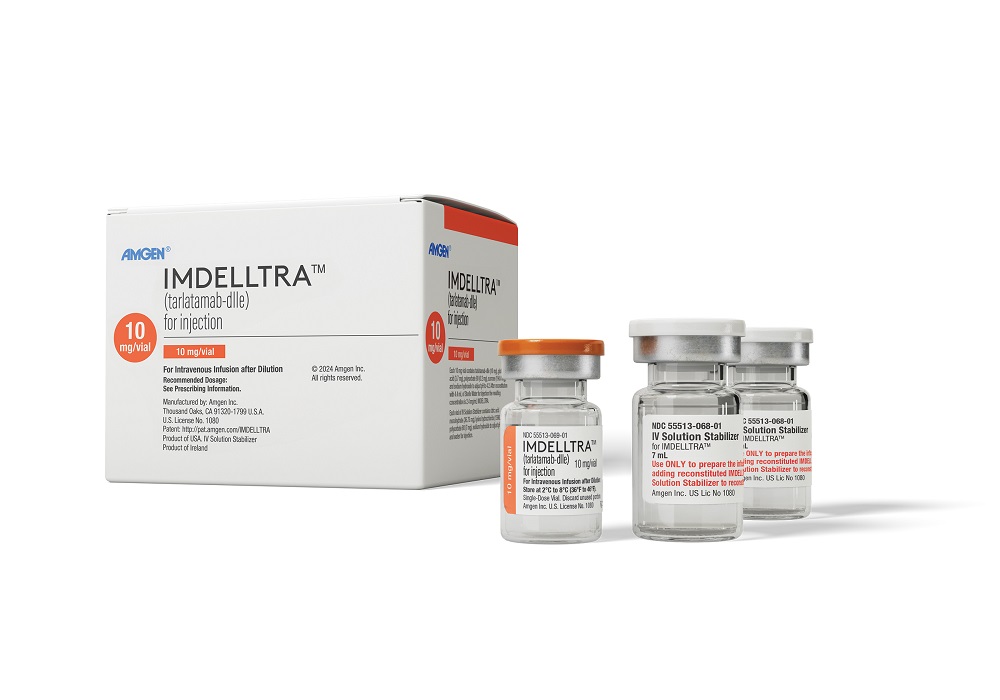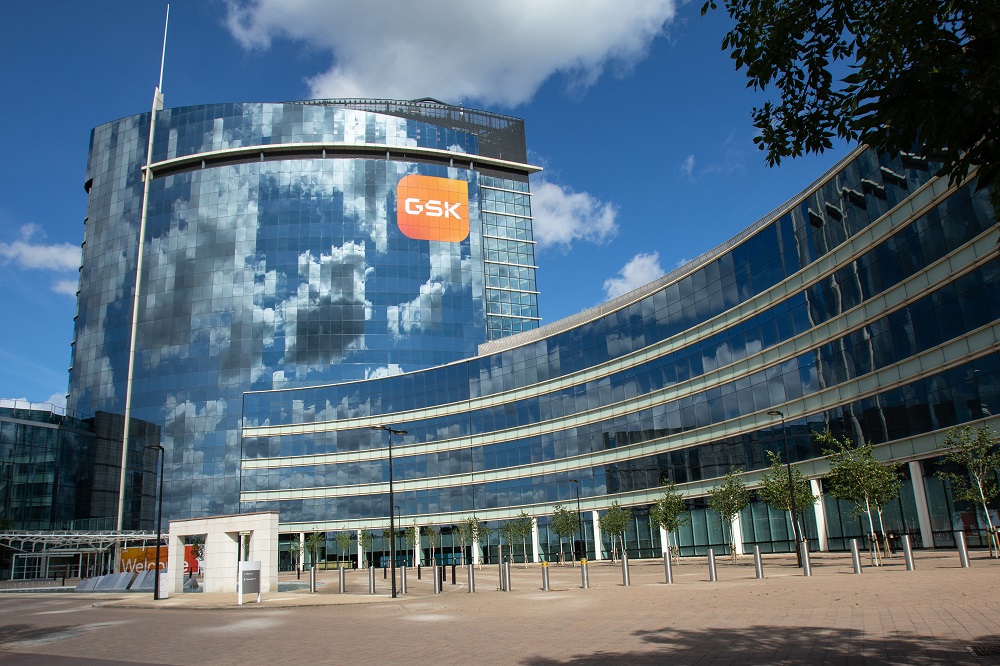
Small cell lung cancer typically responds to chemotherapy, but relapse of this aggressive type of cancer is common and the second-line treatment options offer limited benefit. FDA approval of a new Amgen drug gives patients another treatment option.
The drug, tarlatamab, is now approved to treat adults whose extensive-stage small cell lung cancer has progressed on or after treatment with platinum-based chemotherapy. The approval announced late Thursday came about a month ahead of the expected date for a regulatory decision. Amgen will market its new cancer drug under the brand name Imdelltra.
Small cell lung cancer (SCLC) is less common than non-small cell lung cancer, but it is more aggressive, rapidly spreading to other parts of the body. The five-year survival rate for extensive-stage SCLC is 3%, according to the American Cancer Society. Second-line treatments for this advanced cancer include more chemotherapy as well as a class of immunotherapies called checkpoint inhibitors, which block proteins that cancers use to evade detection by the immune system.

Unlocking Transparency in PBM Pricing
The TSX Venture Exchange has a strong history of helping early-stage health and life sciences companies raise patient capital for research and development.
Imdelltra is a different kind of immunotherapy. The drug is a bispecific T cell engager, a type of drug designed to bind to a T cell and a cancer cell simultaneously, activating the immune cell to kill the cancer cell. It’s Amgen’s second FDA-approved drug of this type. The first, Blincyto, has approvals in certain types of leukemia. The cancer target of Imdelltra is DLL3, a protein abundant on the surface of small cell lung cancer cells. The drug is administered as a one-hour intravenous infusion every two weeks after step-up dosing.
The FDA decision for Imdelltra is an accelerated approval based on the results of an open-label Phase 2 clinical trial that enrolled more than 200 patients whose SCLC had not responded to two or more earlier lines of therapy. The trial evaluated 10 mg and 100 mg dosing against a main goal of measuring for overall response and duration of response. In 99 patients who received the now approved 10 mg dose, the overall response rate was 40%. The median duration of response was 9.7 months. At nine months, the overall survival rate for the 10 mg dose was 68%. The trial results were published last October in the New England Journal of Medicine.
“Given the limited options for patients with [extensive-stage] SCLC, these results represent a meaningful improvement over current options, and there is no approved standard of care in third-line SCLC, for which Amgen estimates a U.S. prevalence of 2,000 to 3,500 patients,” William Blair analyst Matt Phipps said in a Friday research note.
Amgen told Phipps that Imdelltra’s price is $31,500 for the first cycle of treatment and $31,000 for subsequent cycles, which is higher than William Blair’s $25,000 per cycle estimate. Given the high unmet need and limited treatment options in late-line treatment of small cell lung cancer, the firm says the new Amgen drug has blockbuster potential.

A Deep-dive Into Specialty Pharma
A specialty drug is a class of prescription medications used to treat complex, chronic or rare medical conditions. Although this classification was originally intended to define the treatment of rare, also termed “orphan” diseases, affecting fewer than 200,000 people in the US, more recently, specialty drugs have emerged as the cornerstone of treatment for chronic and complex diseases such as cancer, autoimmune conditions, diabetes, hepatitis C, and HIV/AIDS.
Imdelltra’s label carries a black box warning for an excessive immune response called cytokine release syndrome as well as neurotoxicity. The label advises clinicians to monitor for these complications. Both adverse effects are consistent with other types of cancer immunotherapies. Phipps said the monitoring requirements are not surprising due to the rates of cytokine release syndrome observed in clinical testing, but he does not believe they will limit uptake of the drug given that the most stringent monitoring is only in the initial cycle.
Accelerated approval requires a company to conduct clinical testing to confirm a drug’s safety and efficacy. Amgen already has a Phase 3 study underway comparing Imdelltra to standard of care chemotherapy as a second-line SCLC treatment. Additional Phase 3 studies are evaluating the Amgen drug as a monotherapy and as part of a treatment combination with the AstraZeneca checkpoint inhibitor Imfinzi. A Phase 1b study is evaluating the Amgen drug in neuroendocrine prostate cancer, an aggressive type of prostate cancer.
Amgen has scheduled a Monday conference call to discuss the Imdelltra approval.
Photo by Amgen












